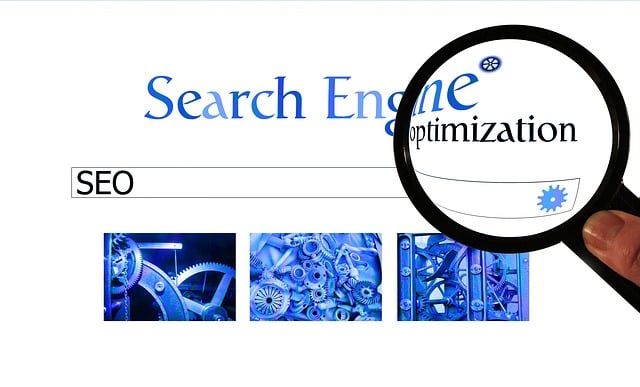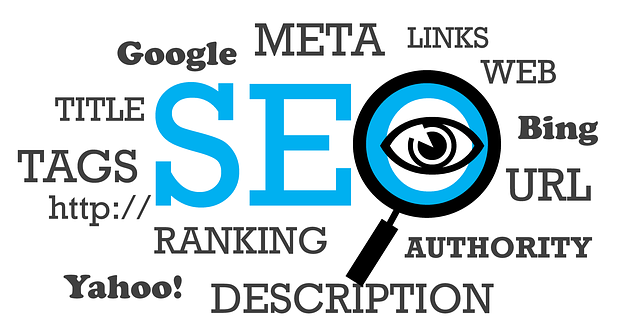In today's digital world, Multi-Channel SEO is vital for online success, as demonstrated by SEO Insights Events. These events showcase strategies like understanding target audiences across platforms (social media, search engines, email), optimizing content for each platform's unique characteristics, leveraging structured data through Schema Markup, building diverse high-quality backlinks, and utilizing social media to boost visibility and engage customers directly. Measuring success requires advanced analytics tools, with events facilitating knowledge exchange and keeping professionals updated on trends like voice search and AI assistants. SEO Insights Events are key to adapting strategies, maintaining competitive advantages, and optimizing content for emerging interfaces while enhancing search engine rankings and user experience.
In today’s digital era, successful businesses understand that multi-channel SEO strategies are key to dominating search engine rankings. This comprehensive guide offers invaluable SEO insights for navigating the complex landscape of online visibility. From identifying target audiences across diverse platforms to optimizing content for maximum impact, we explore proven tactics. Learn how to leverage structured data, social media, and advanced analytics for a game-changing multi-channel approach. Discover the future of SEO as we delve into trends that will keep your business at the forefront of online search.
Understanding Multi-Channel SEO: The Modern Approach

In today’s digital era, understanding Multi-Channel SEO is paramount for any business aiming to thrive online. It’s about recognizing that customers interact with brands through various channels—email, social media, voice assistants, and more. A multi-channel SEO strategy ensures your brand is visible and accessible across these platforms, providing a seamless user experience. This modern approach goes beyond optimizing just a website; it involves integrating SEO insights from each channel to create a cohesive digital footprint.
By adopting this strategy, businesses can tap into the vast reach of online marketing. For instance, an SEO Insights Event could showcase successful case studies, highlighting how brands utilized multi-channel tactics to boost search rankings and drive engagement. This approach ensures that your audience finds you where they are, fostering a strong connection with customers across every touchpoint.
Identifying Your Target Audience Across Channels

Identifying your target audience across channels is a crucial step in any multi-channel SEO strategy. It involves understanding where and how your potential customers are engaging online, from social media platforms to search engines and content-sharing sites. This requires deep insights into user behavior, demographics, and preferences. By leveraging SEO tools and analytics data, businesses can uncover valuable information about their audience’s interests, pain points, and online activities. These insights enable targeted content creation that resonates with users across different channels, enhancing engagement and conversion rates.
During an SEO Insights Event, experts often emphasize the importance of segmenting your audience based on channel preferences. This allows for tailored messaging and content optimization specific to each platform. For example, what works well on Twitter might differ from what engages users on LinkedIn or Instagram. Using these insights to adapt content strategy can significantly improve user experience, increase brand visibility, and ultimately drive better search engine rankings.
Optimizing Content for Various Platforms

In today’s digital era, optimizing content for various platforms is a multi-channel SEO strategy that cannot be overlooked. Each platform, whether it’s social media, search engines, or email newsletters, has its unique characteristics and user behavior patterns. For instance, when creating content for Twitter, you should focus on brevity and real-time engagement, while a blog post designed for organic search may require in-depth analysis and keyword optimization. Understanding these nuances is key to maximizing the reach and impact of your SEO insights during events or campaigns.
By tailoring content to fit each platform, businesses can ensure their message resonates with audiences on a personal level. This approach not only enhances user experience but also improves engagement metrics, driving more traffic back to the brand’s main site. A successful multi-channel strategy leverages the unique strengths of each platform, creating a cohesive and effective digital presence that contributes significantly to overall SEO performance.
Leveraging Structured Data and Schema Markup

Leveraging structured data and schema markup is a powerful multi-channel SEO strategy that provides valuable insights to search engines, resulting in enhanced event visibility and improved rankings. By implementing Schema Markup, businesses can provide clear and concise information about their events, including dates, locations, ticket prices, and more. This structured data helps search engines understand the context of your content, leading to better indexing and increased organic reach during SEO events.
During an SEO Insights Event, experts often emphasize the importance of using Schema Markup for events. It not only attracts more traffic but also improves the quality of that traffic by encouraging rich snippets in search results. These rich snippets display additional information about your event, such as star ratings, prices, and reviews, directly in the search engine results page (SERP), making it easier for potential attendees to find and choose the best option among competing events.
Building High-Quality Backlinks from Diverse Sources

Building high-quality backlinks is an integral part of any successful multi-channel SEO strategy, and diversity is key to achieving maximum impact. When it comes to acquiring these valuable links, focus on securing them from a wide range of sources. This could include reputable industry websites, influential blogs in your niche, local business directories, and even relevant social media platforms. Each source carries its own authority and relevance, which contributes to the overall strength of your backlink profile.
At a recent SEO Insights Event, experts emphasized the importance of natural and contextual links. These are backlinks that appear on sites related to yours, providing valuable content or resources that genuinely benefit readers. Such links carry more weight with search engines as they indicate organic popularity and trust. Instead of chasing links from low-quality sites, invest time in identifying potential partners who can offer genuine value and a diverse range of audiences.
Utilizing Social Media for Enhanced Visibility

In today’s digital era, social media platforms offer a powerful multi-channel SEO strategy for businesses to enhance their online visibility. By leveraging popular channels like Instagram, Twitter, and LinkedIn, companies can reach a vast audience and drive organic traffic to their websites. Social media provides an opportunity to engage directly with potential customers, build brand awareness, and share valuable SEO insights gained from industry events and trends.
Effective use of social media involves creating a content calendar with targeted posts that include relevant keywords, captivating visuals, and engaging copy. Regular interaction through likes, comments, and shares fosters community and encourages user-generated content, all of which contribute to improved search engine rankings. Additionally, sharing valuable resources, such as blog posts or infographics, can establish the brand as an authority in its niche, further enhancing its online presence during and beyond SEO events.
Measuring Success with Advanced Analytics Tools

Measuring success in multi-channel SEO strategies requires a sophisticated approach, and that’s where advanced analytics tools come into play. These innovative solutions provide invaluable insights by tracking user behaviour across various platforms, enabling marketers to gain a holistic understanding of their online presence. Through data analysis, businesses can identify high-performing channels, pinpoint areas for improvement, and make data-driven decisions.
SEO Insights Events, for instance, offer a platform to showcase these analytics, providing an opportunity to share success stories and best practices. Here, marketers present real-time data, demonstrating how their strategies have influenced search engine rankings, driven traffic, and ultimately, boosted conversions. Such events are instrumental in fostering collaboration and innovation within the industry, as professionals gather to exchange knowledge and stay abreast of the latest SEO trends.
Staying Ahead: Trends and Future of Multi-Channel SEO

The multi-channel SEO landscape is ever-evolving, demanding that businesses stay agile and informed about the latest trends. As we move forward, voice search and AI-driven assistants are set to play a more prominent role, shaping how users interact with search engines. Optimizing content for these new interfaces will be key; this includes refining language to match conversational tones and structuring data in ways that assist virtual assistants in delivering accurate results.
Attending industry events like the SEO Insights Event is crucial for keeping pace with these changes. These gatherings provide invaluable insights from experts who are at the forefront of search engine optimization. By staying engaged in such communities, businesses can anticipate future trends, adapt their strategies accordingly, and maintain a competitive edge in the digital market.
